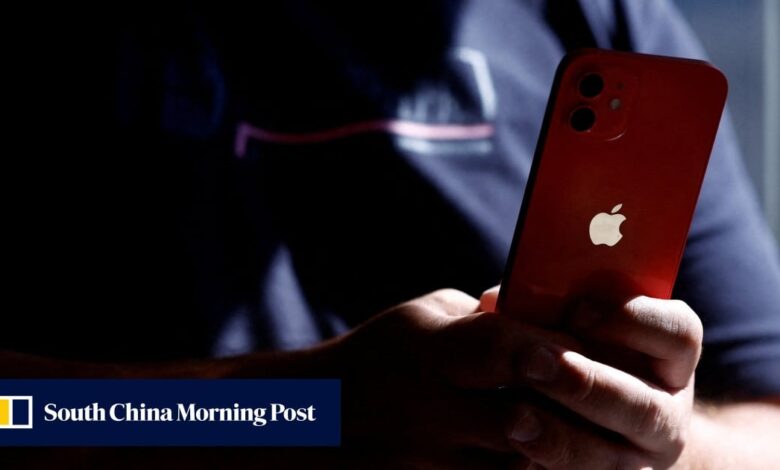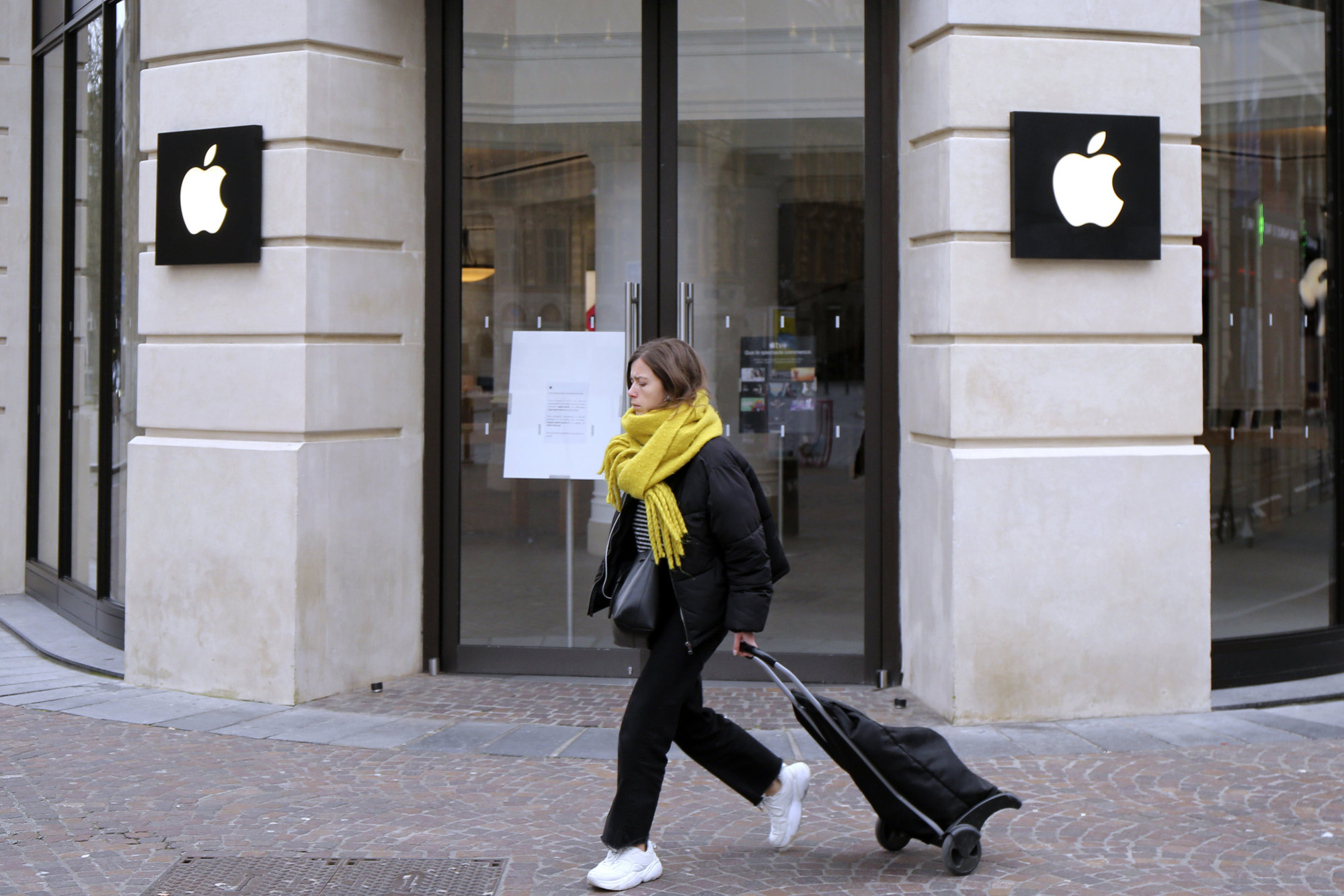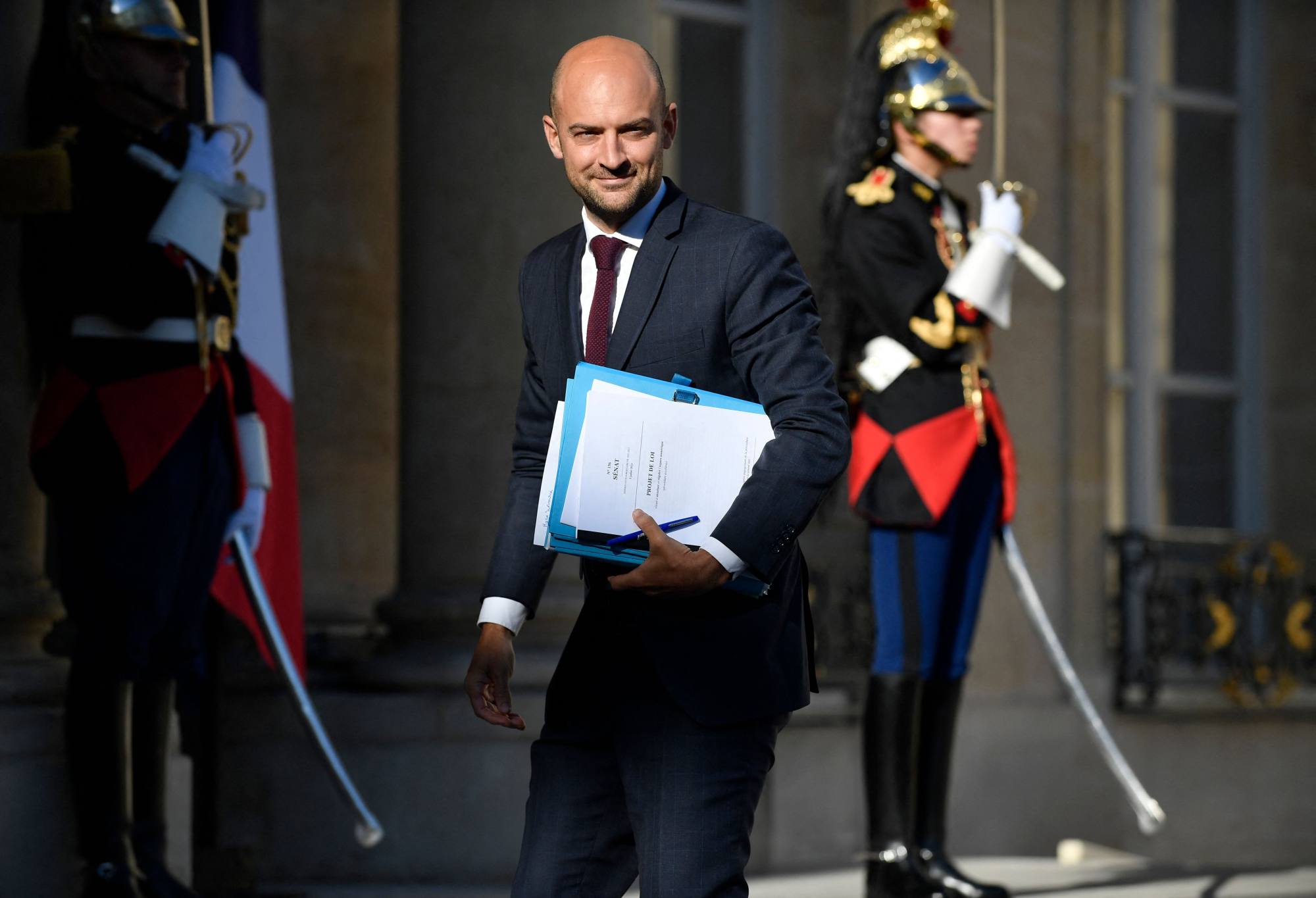Apple defends iPhone 12 radiation level after France ordered national sales ban

[ad_1]
France’s Agence Nationale des Fréquences (ANFR) told Apple on Tuesday to halt iPhone 12 sales in France after tests that it said showed the phone’s Specific Absorption Rate (SAR) – a gauge of the rate of radiofrequency energy absorbed by the body from a piece of equipment – was higher than legally allowed.
The watchdog said it would send agents to Apple stores and other distributors to check the model was no longer being sold and a failure to act would result in the recall of iPhone 12s already sold to consumers.

Industry experts said there were no safety risks as regulatory limits on SAR were set well below levels where scientists have found evidence of harm.
“From a health and safety point of view, it is not as if this is putting anyone at risk,” said Professor Rodney Croft, the chair of the International Commission on Non-Ionising Radiation Protection (ICNIRP), which sets global guidelines on the SAR limits.
The limits – based on the risk of burns or heatstroke from the phone’s radiation – are already set 10 times below the level where scientists found evidence of harm.
Croft said the French findings could differ from those recorded by other regulators because ANFR assesses radiation with a method that assumes direct skin contact, without intermediate textile layers, between the device and user.
A French government source also said the French test was different from the method used by Apple.
Smartphone radiation tests have so far led to 42 sales stops in the country. It is the first time Apple has been affected by such a move.
RECALL THREAT
The ANFR said accredited labs had found absorption of electromagnetic energy by the body at 5.74 watts per kilogram during tests simulating when the iPhone 12 was being held in the hand or kept in a trouser pocket. The European standard is a specific absorption rate of 4.0 watts per kilogram.
ANFR added the tests showed the phone complied with so-called body-SAR standards when it was in a jacket pocket or bag. It also passed the French tests when held directly to the head as if making a phone call.
France’s junior minister for the digital economy, Jean-Noel Barrot, said a software update would be sufficient to fix the radiation issues.
“Apple is expected to respond within two weeks,” he told daily Le Parisien in an interview on Tuesday, adding: “If they fail to do so, I am prepared to order a recall of all iPhones 12 in circulation. The rule is the same for everyone, including the digital giants.”
ANFR will now pass on its findings to regulators in other European Union member states. “In practical terms, this decision could have a snowball effect,” said Barrot.

“The procedure in France has a guiding function for Europe as a whole,” said Germany’s BNetzA network regulator, adding it might launch similar proceedings in Germany.
Germany’s radiation watchdog BfS also said the French decision could have implications for all of Europe.
The International Agency for Research on Cancer, which sets global guidelines on SAR limits, classed the radiofrequency electromagnetic fields resulting from mobile phone use as “possibly carcinogenic” in 2011.
This designation – which also includes the sweetener aspartame, aloe vera extract and some pickled vegetables – flags there is limited evidence of something potentially causing cancer, and is also intended to motivate more research.
[ad_2]
Source link





